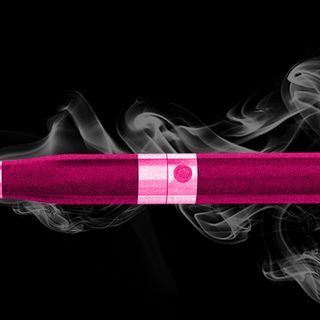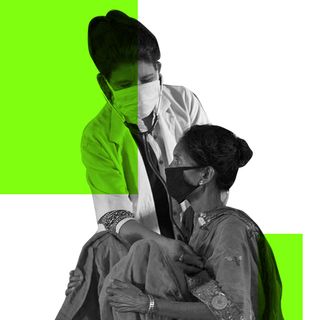The first really good news about a Covid19 vaccine came from Pfizer and BioNTech Monday when the companies announced 90% effectiveness from their late-stage vaccine trials. While stock markets around the world surged, along with people’s hopes for a way out of the pandemic, scientists urged the public to keep in mind the results are preliminary. There is a long way between now and when vaccine manufacturers would be able to administer it to people around the world, especially in developing countries.
First, the vaccine will need to test out real-world scenarios with more test subjects to ensure its reported efficacy bears out. Currently, Pfizer and BioNTech are reporting results based on 94 cases of coronavirus that showed up in their larger clinical trial, after participants had either received two doses of the vaccine or a placebo. They found the vaccine was 90% effective at preventing Covid19 from developing upon exposure to the novel coronavirus a week after the second dose.
The trial is currently ongoing, and the results — only announced via press release for now — have not yet been published in a peer-reviewed journal. Beyond confirming the efficacy rate, scientists would also need to determine how long the vaccine protection lasts, whether the vaccine prevents symptoms (after exposure) or whether it also prevents transmission, and if it can protect people who’ve already had Covid19 from getting reinfected.
Related on The Swaddle:
Effective Covid19 Vaccine Will Be Meaningless in India Without a Mass Immunization Strategy
But even if all those questions are answered, the main roadblock to this particular vaccine is its storage and distribution — it needs to be stored at -80 degrees Celsius to maintain its potency, which is a tall order compared to others that need -2 to -8 degree Celsius temperatures. This is especially difficult for developing countries that don’t necessarily have the widespread infrastructure it would take to store and administer the vaccine at this temperature.
“Most if not all the current frontrunners require extremely stringent cold chains, making them immensely challenging for India to implement,” Satyajit Rath from New Delhi’s National Institute of Immunology (NII), told the Economic Times in October. Around the same time, the government released a massive scheme to map out cold storage chains present in India, not just in the field of medicine, but also roping in the food processing and agri-business sectors, The Hindu reported.
For now, Pfizer plans on collecting two months’ worth of safety data from the participants of its clinical trial, as required, before applying for emergency authorization for the vaccine, which would make it available to the public. Company executives have floated they could get 15 to 20 million people immunized by the end of 2020. But while the world hails this news, we need to keep in mind the trajectory medical breakthroughs have followed in this pandemic: several drugs have been hailed as the treatment for Covid19, in a rush to have solutions, only to be recalled for lack of conclusive data, or worse, due to complications.
Pharmaceutical companies are likely operating under pressure from governments worldwide, with many of the latter already having blocked millions of doses for their own populations (called vaccine nationalism) in the West. If there’s anything the Covid19 pandemic has taught us, rushing to give any kind of news, however positive, usually comes to bite us later. When thinking of the Pfizer vaccine, as independent scientists have warned, some celebration may be warranted, but it better be accompanied by a whole lot of caution.




